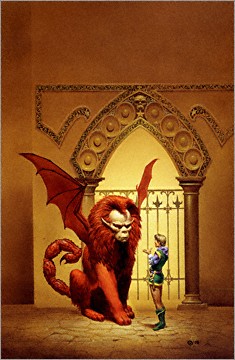 Piers Anthony is still alive. He wrote a lot of the fantasy and SF that I loved when I was coming up in the 1980s. These were breezy books, easy to read, lots of great characters and situations and tons of ideas. It was a fantasy of ideas. The Apprentice Adept series, the Incarnations of Immortality, and Xanth.
Piers Anthony is still alive. He wrote a lot of the fantasy and SF that I loved when I was coming up in the 1980s. These were breezy books, easy to read, lots of great characters and situations and tons of ideas. It was a fantasy of ideas. The Apprentice Adept series, the Incarnations of Immortality, and Xanth.
In the first Xanth novel, a Manticore asks the great wizard a question. “Do I have a soul?” The Manicore fears that, as a monster, he does not. The Wizard explains that only those who have a soul, wonder if they have a soul. It is, to me, a much more satisfying fairy tale ending than Dorothy having “always had the power” to get home.
Games can be fun for a lot of reasons. They can be rewarding, for different reasons. But I think they can also have soul. Humanity. I’m beginning to think the difference between traditional storytelling media and games is that the older media are revelatory while this new one we’re creating is expressive.
In other words, in a good movie–and I think film is the best at this–you can have an experience that sheds light on what it means to be a human being. You can learn something you didn’t know about being a person. You can see something you did know, expressed in a way that reinforces it, that validates it, that makes you think “YES! That’s how it is!” And which makes the experience of being a person more real.
Wereas in games we have the opportunity to express that humanity. To do things that capture the essential nature, the beauty, of being alive, of being human.
Some games, in other words, have soul. They are soul, they’re about it. They are spiritually nourishing. (more…)
Pan’s Labyrinth
October 17th, 2011 input via mattcolvilleA quote I’ve heard attributed to many people, but in this case I cite Alfred Hitchcock, is “If you want to be universal, be specific.”
Guillermo Del Toro places his fairy tale story of skepticism and fascism in Spain, 1944, just after the Spanish Civil War and, in doing so grounds his story in specifics, freeing his fantasy to be universal.
As with all fairy tales, there is a moral here. A subversive one. Whereas most fairy tales extol the virtues of honesty, obeying your elders, not straying from the path, Pan’s Labyrinth’s moral is about thinking for yourself, disobeying authority. No surprise, then, that the film is set in post-Civil War fascist Spain. The movie is about fascism. The fascism of totalitarian governments, and the fascism every child experiences at the hands of their parents. Parents who issue apparently arbitrary orders and expect them to be thoughtlessly carried out for one’s own good.
But, as the movie directly states, only a certain type of person can follow orders for the sake of following orders. And while adults in the film struggle with fear as they try to rebel, childhood is the natural antithesis of fascism.
12-year-old Ofelia, our main character, is therefore well-armed to oppose the murderous reign of her cruel stepfather, Captain Vidal. Both a tyrannical father and a literal fascist. When the local guerrilla revolutionaries move into the forest, Captain Vidal has moved his trooped into the forest and turned a farmer’s mill into a garrison. No coincidence that our fairy tale begins with our hero entering the forest.
Ofelia’s mother arrives, child in tow. Her husband is dead, and she is pregnant with Captain Vidal’s child. Was Captain Vidal involved in the husband’s death? Oh, probably. You know how these things go. But Ofelia’s mother seems genuinely happy that they are coming to live with the Captain, because it means security. She will be taken care of. She tells Ofelia; “The captain has been so good to us.… Please, Ofelia, call him father. It’s just a word, Ofelia, just a word.”
And here we have our first inkling of what this movie is going to be about. Ofelia simply refuses to do it. She never does it. She knows she’s never going to do it as soon as her mother asks, and we can tell! This young actress is astonishing in her ability to play wide-eyed wonder, and skepticism, and determination, often without resorting to dialog. We can tell what she’s thinking. Lots of movies never reach that level of writing and acting, with adult actors!
She’s not a perfectly moral hero, the movie does not argue that childhood means perfectly moral innocence, or that innocence is a virtue. Ofelia lies. She disobeys her mother. There are several points in the film where Ofelia forces herself to do some really unpleasant (as in, gross) things because she was promised she’d be made a princess if she did. And in those moments, she steels herself, reminds herself how badly she wants to be a princess, and soldiers on. It’s, frankly, adorable to watch precisely because of how selfish it is. “I am going to be a princess, even if I have to slog through all this mud and end up covered in beetles.”
But it does argue that childhood affords a purity of thought denied to us adults. We cannot want something so purely, or believe things as strongly as a child, and this is part of Ofelia’s defense against fascism.
It’s clear early on when Ofelia begins to experience some magical, possibly imaginary, things. When she encounters a fairly disgusting bug, remember this is the same guy who made Cronos, she says; “Hi! Are you a fairy?”
Is it a fairy. No! It’s a bug! But that Ofelia can see something so ugly and imagine that it’s a wondrous fairy is another one of her virtues and, possibly because of her belief, we see the bug become a fairy, and the adventure begins.
She meets a small cast of interesting and terrifying characters. The titular Faun at the center of the titular labyrinth informs her that she is the reincarnation of a princess and if she can pass three tests her father the king will take her away from it all and she’ll rule over fantasyland.
Of course, if we’ve been paying attention, we know Ofelia is going to disobey virtually every instruction the Faun gives her. She’s like the Fairy Tale version of John McClane from Die Hard. She gets her ass kicked at every turn, and wins all the way through.
She is not burdened with any adult baggage. When we see the Faun, he appears a diabolic and sinister character. I would have got the hell out of there, or looked for a shotgun. Ofelia may be afraid, but she remembers her manners, like a good girl. “My name is Ofelia. What’s yours?”
When confronted with the gigantic frog at the bottom of the world, she is disgusted, but articulate. “Aren’t you ashamed to live down here, in all the mud, eating nothing but bugs?”
This is not movie dialog, it’s fairy tale dialog, and it’s delightful. There’s more fairy tale plotting. When Ofelia (astonishingly played by Ivana Baquero,) has carefully and wisely chosen to remove the new and expensive dress her mother made for her, so it will not get dirty as she explores the Underworld, we know something bad is going to happen to the dress. It’s going to get ruined, and she’s going to get in trouble, in spite of the fact that she TRIED to keep it nice, and was thinking ahead and being responsible, and we know no one will believe her. Fairy tales used to teach children that the world was going to be an awful and capricious place. Unfair, and rarely unfair in our favor.
It should be no secret that Ofelia’s fantasy world, and the cruel reality of Captain Vidal, the Evil Stepfather, are going to collide. At most, only one can survive.
Ofelia is not the only character who struggles against Captain Vidal, and the plight of the Spanish peasants to deal with the autocrat is dark, and violent and not what we associate with a fairy tale. But in spite of its brutality and violence, I thought…if I had a six year old daughter…I might take her to see this. Because it works as an amazing fairy tale, with lessons about the world, one of which is; people can be horribly cruel to one another. That’s what fairy tales used to be about. Horrible lessons for children, wrapped in fantasy. Maybe I’d scar my daughter for life, or maybe she’d come out of the experience with a healthy and deep-seated distrust for authority, and people who obey orders for order’s sake.
District 9
October 14th, 2011 input via mattcolville
Before the movie started, my friend Mark related the story of working in Los Angeles and getting passes to be in preview screenings of movies. This is a shared experience many of us have. I saw Back to the Future and Legend and a few other movies in test screenings when I was a kid.
He describes seeing a movie called Valentine having no earthly idea what kind of movie it was going to be, nothing except the title, and so when the first scarey moment happened, he almost shit himself. The movie, he explained, wasn’t very good and wasn’t that scary once he knew what he was in for. But not knowing, that first moment was among the scariest he ever experienced.
I think I probably would have liked District 9 more if I knew literally nothing about what I was going to see when I sat down. This is, however, not an experience we often have. TV is our only avenue for that kind of discovery, that kind of tabula rasa experience. I was reading a retro-article from the early 1980s about the advent of the “remote control” culture and “channel surfing” and how degenerate it seemed to the people who were adults at the time. Like their kids had some sort of disorder because they’d change the channel every second. But that experience has a lot to recommend it. You come across some amazing shit when you have 0 expectations and judge the work purely on your reaction to it with no marketing between you and the authors. Often showing up in the middle, without any backstory. The movie didn’t begin in media res but your version of it did.
Someone stumbling across District 9 as they channel surfed (a dying experience, I believe, with the advent of streaming) would probably have their mind blown. I, however, did not. I knew what the movie was about and so was a little disappointed.

It’s hard to criticize this movie if you know how it was made. The whole thing looks like a $120 million movie, but cost only $30 mil plus some Halo money. When you know that, you tend to give it some slack. It’s damned impressive for thirty million. What a cop out, huh? Damned by faint praise.
The main failing of the film is the completely lack of anyone to give a shit about, except maybe the aliens. Every single human character in the film is a worthless piece of shit. I’m not sure, maybe that’s the point of the film. When you know you’re in for a movie about a bunch of aliens in a ghetto in Johannesburg, you expect some subtext, some political allegory, but it’s hard to get any kind of meaning from a film that paints all its characters with such relentlessly bleak negativity. “Turns out, we’re all bastards!” Well, that’s a kind of dead-end, isn’t it?
Allow me to give an example. When the main character, obviously ill, disoriented, staggering around, vomits blue goop onto his own party cake, his friends and family just watch. For quite a while. And frown at him. Not a single person at the party, including his wife, suggests or even implies that maybe someone should call an ambulance. Imagine John Hurt writhing on the table in Alien, the chest-burster rupturing through his sternum in some twisted nightmarish version of birth, and everyone else just standing around watching, not helping, turning to each other and commenting “what an asshole.” That’s the kind of human we’re dealing with here.
There’s a moment when the Head Evil Mercenary Dude looks around in the middle of a firefight during which all sorts of crazy alien shit has happened, points to an alien he’s captured and says: “that guy knows what’s going on.”
He’s right. He’s absolutely correct. It is literally the only time in the movie any human being displays even an ounce of sense or insight.
A lot of the movie, like The Matrix, seemed to think that storytelling wasn’t necessary since they’d already decided they were going to make people one dimensional and trot out some cliches. “Listen,” the movie says. “You know that bit where no one believes him and his girlfriend abandons him and he’s all alone, right? So we don’t have to mess around with that do we? Here’s a phone call from her, you know what she’s going to say, so we’re just going to kind of say it quick and move on. Just imagine there was a whole relationship there you belived in and which just fell apart, ok? We’ve got some robots to fire up.”
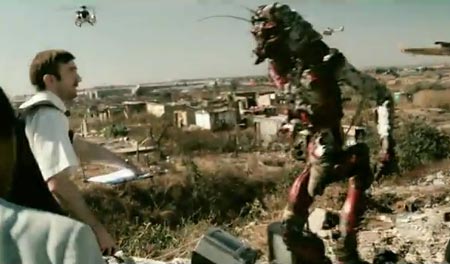
We don’t know enough about his wife and their relationship to give a shit either way, which is probably for the best because this movie has such a dim fucking opinion of the human race, if we learned any more about her we’d probably end up hating her too. You know the stereotype of Dick Cheney as the evil mastermind? Well, imagine if A: he really was that guy and B: he took his lesbian daughter whom his party’s platform demands he abjure and instead of coming out in support of her, put her in a blender, juiced her, and drank her. Then he’d be all of the main bad guys of this movie.
A man may smile and smile and be a villain. Yes. But apparently in the future he can just be a villain and bypass the smiling part.
We’ve come full circle somewhat. Peter Coyote’s character from E.T. didn’t want to cut the little alien open and feast on his floppily-doppilies. The only reason Eliot thinks he’s going to do that is because Eliot’s head is filled with old SF where the bad guys always want to dissect the local aliens. Coyote’s character has to explain that in fact they’re trying to save E.T. Indeed, if we look back at the movie, all Eliot did was keep the sick alien away from the only people who had a chance of making him well again.
In District 9, everyone is either A: an idiot, or B: exactly the people Eliot thought Peter Coyote’s character was. It’s the 1950s all over again. They want to juice the aliens, they want to steal what the aliens have, they want to profit from it, they want to exploit them and each other and will destroy anyone and anything, heedless of any consequence to do it. Shit, watch the original Day The Earth Stood Still, we’re way worse now in District 9 than any humans were back then.
If these were two dimensional characters, that would be great. I have a great fondness for 2 dimensional characters. These guys are barely 1 dimensional. The only thing they’re missing is mustaches to twirl and blonds to leave tied up on railroad tracks. It’s dangerous to generalize. Does this movie just happen, by co-incidence, to feature nothing but worthless humans? Or is it just South Africans? Or is it everyone? Fuck you, either way.
The main character is something of a cipher for every fucked-up dysfunctional character ever. He’s a groveling sycophant, an inept bureaucrat, a bloodless coward, and a sociopathic bully. He’s so irredeemable the only way he’s able to get even a little perspective on the horror of the reality he’s lived with for 20 years is by being literally turned into one of the aliens. Only then does he seem to entertain the notion that, hey, maybe these guys aren’t so bad. But then, the entire rest of the cast is trying to gun him down, run him over, and blow him up all at once so it may just be that he likes the aliens because they’re the only ones not trying to kill him.
The action sequences and special effects are top notch. It’s hard for me to get behind the acting because the actors are given such weird characters to play. There is a WHOLE LOT of Chekov’s Gun in this movie such that you almost need a score card to keep track of every critical plot element and coincidence they mention in the first act so that, upon trotting them out in the third act you’ll know what’s going on. Get ready, because I’m about to praise Die Hard again
You know, when John McClane learns about making fists with his toes, it’s in service to a scene that tells us he doesn’t like to fly. So if he doesn’t like to fly, what’s so important that would make him overcome that? Oh, his wife. And their relationship is on the rocks. All that from fists with your toes. That’s tight plotting. In District 9 it’s fists with your toes now, so that in an hour and fifteen minutes he can punch people with his toe-fists. That’s it. These data points we’re given aren’t in service to anything. The alien weapons can only be fired by the aliens. That’s it, no further exposition, no insight into why that might be or what it says about the aliens, because it doesn’t say anything about them. The Nigerians want the alien weapons even though they can’t use them, for no reason, no insight there into the Nigerians or anyone else. They’re only important because the plot needs them later.
I realized pretty quickly that I didn’t want to see the movie they were showing me. As the main character drives around District 9 alternatively being afraid of and brutalizing the aliens, I thought “Oh. It’s this then, is it? I want to learn some more about the aliens.” They just aired Alien Nation on SciFi and I had one of those moments where I felt certain they were deliberately trying to remind us of a current-movie’s roots, by showing the stuff that inspired it.
When Alien Nation came out, I was impressed, but only because I thought it was going to be crap. It’s actually pretty good. Better, I think, than this movie and at least part of that is the view into the alien’s culture and lives, almost none of which we get here. What were they doing on that ship? Why did it stop working? What the hell was going on?
I’m not saying the movie had to answer those questions, nothing could be further from the truth, I’m just saying that I’d rather have learned about that, than get the story I got. You know, I didn’t like the bit in Footfall where the journalists turn out to be so blinded by their quest for a story that they will betray the human race’s plans for a counter-attack to the alien invaders, I thought it was just the authors hating journalists and putting their hate into the book. But at least it was a point of view. It was a statement about something, even though I didn’t like the statement, it was well-done.
It sounds like I hated this movie and I usually don’t come in and say “I liked it” or “I hated it,” because I think that’s lazy. But I do want to say “it’s not as bad as I make it sound.” You don’t really think about a lot of these things while you’re watching the movie, because it moves so fast. And every time they use the POP gun on the humans, no matter how many times they do it, everyone in the audience goes “AAUGH!” So that’s fun.
Just try not to think about how awful everyone in the movie is.
D&D 0
October 12th, 2011 input via mattcolville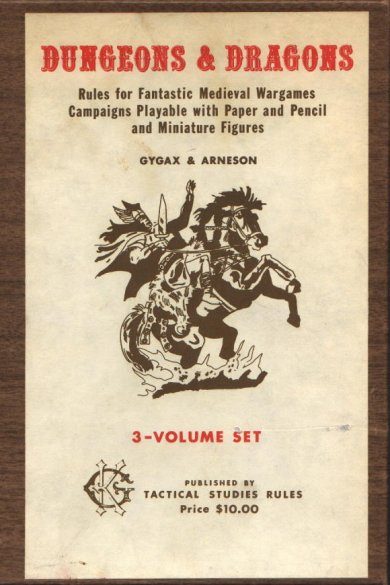
As I suspect thousands of people did in the week after Gary’s death, my friends and I played OD&D to memorialize the man who invented our hobby.
My friend Jim was 19 in 1975. He played with Dave Arneson a couple of times when Arneson was out here at Conventions. He was in Lee Gold’s group (which he describes as being many large groups all amalgamated together) when Lee started Alarums & Excursions. Playing with Jim is, no shit, playing with part of gaming history.
So Jim shows up last night after I suggested we play OD&D in memory of Gary with his original D&D “books.” By books here, I mean pamphlets. This was before AD&D, this was before the boxed sets we all grew up with. This was the original. (more…)
The American
October 12th, 2011 input via mattcolville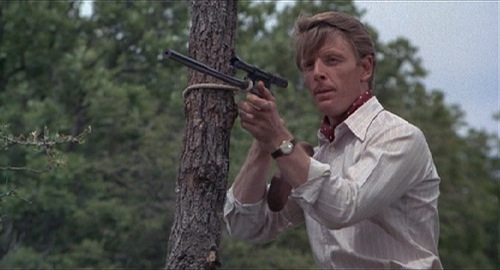
There’s a scene in the classic thriller The Day of the Jackal where cool, English, sophisticated Edward Fox is using his custom-made rifle to shoot at melons in a overgrown field in the middle of France. He’s doing this, wearing a very natty ascot, because he’s a paid assassin, practicing for his planned hit on French President Charles de Gaulle.
That’s a great juxtaposition. Debonair, efficient, not a care in the world, plugging away at watermelons and this works, there’s tension in this scene, because we know that he’s planning on killing the President of France, and we know he knows. That he can be so suave while he’s imagining de Gaulle’s head exploding makes an otherwise non-descript scene work.

George Clooney as the title character in The American has exactly that same scene. Wildflowers instead of melons, Italy instead of France, and an overgrown river instead of an overgrown field. But the gun is his, also self-built, for the same reason. (more…)
Avatar
October 11th, 2011 input via mattcolville
Watch this trailer. Everyone I know is going crazy for this movie. I have no idea if it’ll appeal outside that small demo who cares about casts, who love the idea of a spy thriller with Gary Oldman, John Hurt, Mark Strong, Colin Firth, Tom Hardy, and Benedict Cumberbatch. But if you notice, really the cast is all that movie has going for it. If it weren’t for the cast, would we give a shit?
Most trailers are like that. Most movies these days are just variations on shit we’ve seen 1,000 times before. What makes them pop, what attracts your attention, is the execution. You can’t, in other words, just hit the random item button on TVTropes.org once for every 5 minutes of movie and then congratulate yourself on a job well done. (more…)
Jodorowsky’s Dune
October 11th, 2011 input via mattcolville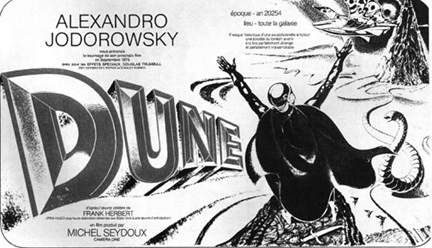
Probably he knew it would never get made. There had to be a feeling, a nagging twinge in the back of his mind. Pink Floyd doing the soundtrack. Jean Giraud the art. Orson Wells as the Baron Vladimir Harkonnen and Salvador Dali as the Emperor of the Known Universe. It was simply too grand, too ambitious. Too many wishes were coming true for it to all hold together. Jodorowsky must have sensed even from the beginning that this movie could only exist as an ideal. His impossible, insane, psychedelic, Jungian, mind-altering adaptation of Frank Herbert’s Dune could exist as a potential only. The artists who work on it openly speak of its success, even though it was never finished. Because to them, the journey was the destination. Those artists are the reason this unmade film is so colossally influential. (more…)
Blade Runner
October 10th, 2011 input via mattcolvilleAfter wrapping Prometheus, Ridley Scott announced he’s planning on revising his other masterpiece. I think he’s doing this because he’s old, and the attention he gets when he goes back to these old properties is much more satisfying to him than the attention he doesn’t get doing completely forgettable stuff like Robin Hood. But I, like a lot of people, am skeptical. I’m skeptical not because of Scott now, but because of how Blade Runner was made then. It is a unique film. The kind you only get when very unusual things happen during the production of your film. Without those unique elements, we’d not have the film we have. A film that prompts people to write essays about minor characters. A film worth examining again. (more…)
Tron Legacy
October 9th, 2011 input via mattcolville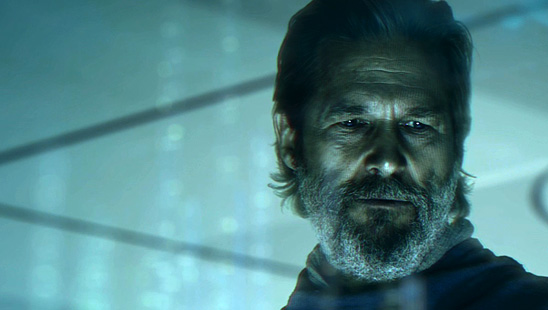
I’m going to say something that may seem obvious to you, or it may be the first time you’ve heard it, or thought about it.
Tron is a movie that imagines the programs we use lead their own little lives behind the computer screen.
If you’ve never seen Tron that statement should give you a clear idea what the movie’s about. It’s the thesis statement of Tron. Not just the movie, the world of Tron. It is my expectation, however, that if you have seen the movie Tron you already know that. (more…)
Black Thor
October 9th, 2011 input via mattcolvilleThis post originally appeared, slightly edited, on the old site.
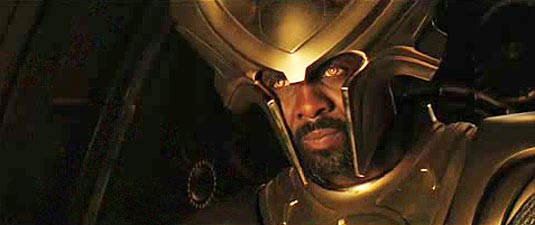
Steve Landesberg died this week, he was 74 which seems a good age for that sort of thing. This may sound weird, but that dude had an impact on me. Well him, and the character he and the writers on Barney Miller created. If you don’t know what I’m talking about, watch this. There are better examples, but that’s the only one I could find. (more…)

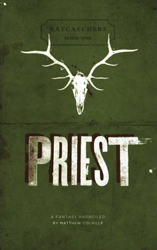 My first novel
My first novel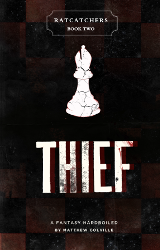 My new novel.
My new novel.